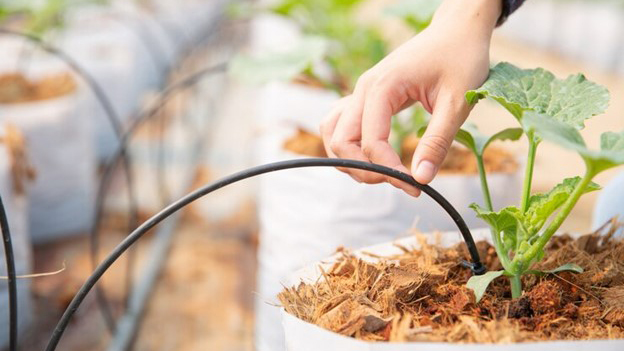Unlock the Power of Organic Liquid Vegetable Fertilizer
Soil health stands as the most important factor for cultivating thriving vegetables. The soil provides the much-needed nutrients, enabling your vegetables to flourish and thrive. However, maintaining soil health is an uphill battle that many find themselves losing. That’s where organic vegetable fertilizers come into play. By enhancing soil quality, these organic fertilizers supply crucial nutrients to your vegetables.
Of the various options available, Liquid vegetable fertilizers have recently gained significant popularity as they provide long-term nutrients to vegetables. So let's understand what liquid organic fertilizers are and how they can be a game-changer for your vegetable garden.
Understanding Organic Liquid Fertilizer For Vegetables
Organic liquid fertilizers are a type of vegetable fertilizer that provides soil supplements to your plants. Liquid fertilizers are easier to apply than solid fertilizers and are also absorbed by plant roots more rapidly, almost like a turbo boost for your veggies. Think of it as a nourishing potion that your plants eagerly gulp down, ensuring they get the nutrients they crave precisely when they need them.
The beauty of these liquid fertilizers lies in their balanced nutrition, packing a punch of essential elements such as nitrogen, phosphorus, and potassium (N-P-K) which are vital for robust plant development. Some of the other benefits of using organic liquid fertilizer for vegetables are:
- Fast absorption: Liquid fertilizers are easily absorbed by plant roots, providing a quick infusion of nutrients.
- Improve soil structure: Unlike chemical fertilizers, organic liquid fertilizers help maintain soil fertility and provide nutrients to plants.
- Environmentally Friendly: Opting for liquid fertilizer for your vegetable garden is a sustainable option as these fertilizers are free from synthetic chemicals that can harm the soil, water, and surrounding ecosystems.
How to Choose the Best Organic Liquid Fertilizer for Vegetables
As there are a plethora of options available in the market, selecting the best liquid fertilizer for your vegetable garden can be challenging. Consider the following factors while making your decision:
- Nutrient Composition: Look for a liquid vegetable fertilizer with a balanced ratio of nitrogen, phosphorus, and potassium (N-P-K).
- Application Frequency: Some organic liquid fertilizers are designed for frequent use, while others are intended for less frequent application.
- Vegetable type: Choose an organic fertilizer for vegetables according to their nutrient requirement. For example, fruity crops like tomatoes, and bell peppers need a lot of nutrients to produce, whereas leafy vegetables require nitrogen-rich fertilizer.
- Additional nutrients: While choosing the best liquid fertilizer for vegetables, make sure to check for other micronutrients such as zinc, iron, and calcium, which can enhance plant health.
Tips for Utilizing Organic Liquid Fertilizer for Vegetables Effectively
To get the best results out of your organic fertilizer for vegetables, here are some key tips to keep in mind:
- Follow the Application Guidelines: Every organic liquid fertilizer for vegetables comes with specific application guidelines. Ensure you carefully read and follow the instructions on the product label. Pay attention to recommended dilution ratios and application frequencies to avoid over-fertilizing, which can harm your plants.
- Timing is Important: Apply the liquid fertilizer at the right time for maximum effectiveness. Many experts recommend applying liquid fertilizer early in the morning or late in the afternoon to minimize nutrient loss due to evaporation.
- Apply Evenly: While applying the liquid organic fertilizer on your vegetable plants, make sure that it is distributed evenly throughout. Uneven application can lead to nutrient deficiencies and inconsistent growth of plants. Consider using a can with a fine nozzle for the even distribution of fertilizer on each plant without leaving any.
- Moderation is the key: It’s important to exercise caution while applying fertilizers as excessive fertilizer can lead to issues like nutrient imbalances, root burn, or excessive vegetative growth, potentially hindering the development of vegetables.
In conclusion, prioritizing soil health is key to thriving vegetables. Organic vegetable fertilizer in liquid form emerges as a solution, enhancing both soil vitality and nutrient supply. For better results, make sure you choose the best organic liquid fertilizer for your vegetable plants, and apply the fertilizer by keeping our tips in mind.



